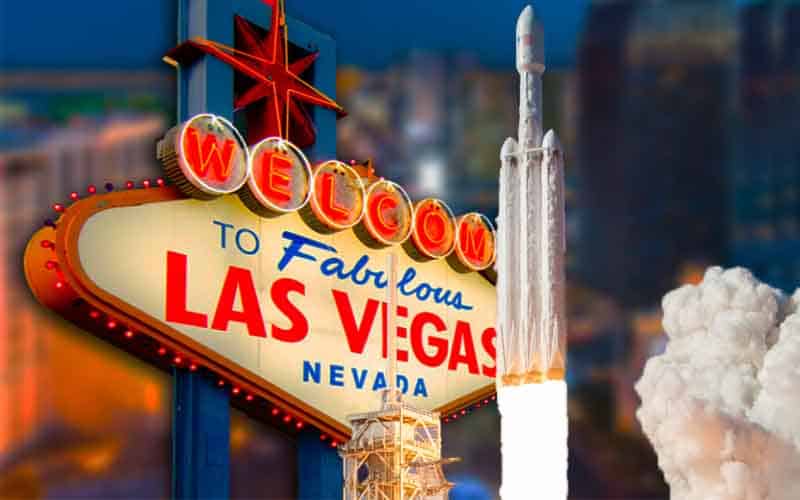Tomorrow, Week 1 of the college football season starts in earnest, and the NFL season officially gets underway on Thursday of next week (September 7). As such, you can expect a big bump at all the hundreds of Las Vegas sportsbooks.
Of course, given that most sportsbooks in Vegas are associated with various Vegas casino operations, they hardly need it.
After a tumultuous couple of years (and a particularly chaotic 2020), Las Vegas casinos are finally consistently back on top. The venues seem to be hauling in historically large amounts of revenue month after month, with July being no different. In fact, July saw a record haul in Sin City, with area casinos raking in more moolah than ever.
Per Casino.org:
“The Nevada Gaming Control Board (NGCB) reported Wednesday that July gross gaming revenue (GGR) in Clark County was a record $1.208 billion, a 7.5% year-over-year increase. Strip casinos reported GGR of $834.9 million, also an all-time high for the state’s most critical gaming market.
Statewide GGR totaled $1.404 billion, up nearly 7% to mark the richest month in Nevada gaming history.”
This means that 2023 will likely be the biggest year in the history of the international gambling mecca. At least, if you’re not adjusting for inflation. If you do that, we’re all in the red and should never bet on (being in the) black again.
After losing more than 95% year-over-year from 2019 to 2020 (remember that pandemic thing?), Vegas’ bread and butter industry has been charging back. And unless there’s a cataclysm in the next few months where Vegas suddenly becomes the dead, dystopic wasteland it’s usually portrayed as in the movies, the market should set a record for income in 2023.
While the final number is still unpredictable, it’s a dead cert that Nevada will take in more than last year’s record haul of $14.8 billion of revenue, which was itself a massive increase on 2021’s revenue record $13.4 billion.
In all likelihood, $15 billion — possibly even $15.5 billion or even $16 billion — will become the new annual high-water mark.
And again, the height of the US sports betting season (i.e. NCAA and NFL football) is just kicking off.
While it’s true that Las Vegas casinos — and all casinos, for that matter — make the bulk of their money off slots (and to a lesser degree, table games), the increased interest in sports betting will drive more action to said casinos. That is, there’s no reason to think the action on the gaming floor is going to slow down before area casinos shatter last year’s income numbers.
Any notion that the closures of 2020 would bring about the advent of mobile online Vegas casinos sooner than later can be put to rest. We actually thought it was inevitable ourselves, but Vegas has shown without any doubt that physical brick-and-mortar casinos are here to stay.
Speaking of here to stay, at least one recent Vegas institution isn’t.
If the region is going to break its annual revenue record for the third year in a row, it’ll have to do so without the help of ESPN. Of course, that shouldn’t be too difficult. ESPN is irrelevant. We admit to simply using the setup as a segue. (Try that, ChatGPT!)
After three years of broadcasting from The LINQ, a Caesars property on the Vegas Strip, ESPN is packing up and moving its Daily Wager program – which we’ve never seen because ESPN is the most disingenuous gambling “advocate” ever and we have no patience for that – back to ESPN HQ in Bristol, Connecticut.
Scott Clark, VP of ESPN’s Fantast & Sports Betting Content division, explains:
“ESPN created some great content and incredible memories during our time at the Las Vegas studio. With our new ESPN BET deal set to launch this fall, we felt it was best to return to our headquarters. We cannot thank everyone we worked with at Caesars Entertainment over the past few years and we wish them the best into the future.”
If you weren’t aware, ESPN has entered into a $1.5 billion deal with Caesars rival PENN Entertainment.
For PENN, the agreement serves to replace the beleaguered Barstool Sports brand (which has been remanded to the custody of beleaguered founder, Dave Portnoy) with the ESPN brand.
Meanwhile, PENN will provide ESPN with a massive audience in up to 34 states where sports gambling is now legal. The contract is for 10 years, during which time PENN will roll out the ESPN-branded “ESPN Bet” sports betting experience in both physical and mobile capacities.
PENN CEO Jay Snowden had this to say about the partnership:
“This transformative, exclusive agreement with ESPN marks another major milestone in PENN’s evolution from a pure-play U.S. regional gaming operator to a North American entertainment leader. ESPN Bet will be deeply integrated with ESPN’s broad editorial, content, digital and linear product, and sports programming ecosystem.”
Whether or not this helps ESPN’s faltering ratings — and where Stephen A. Smith goes from here — remains to be seen.
Sources: Casino.org, KTNV

